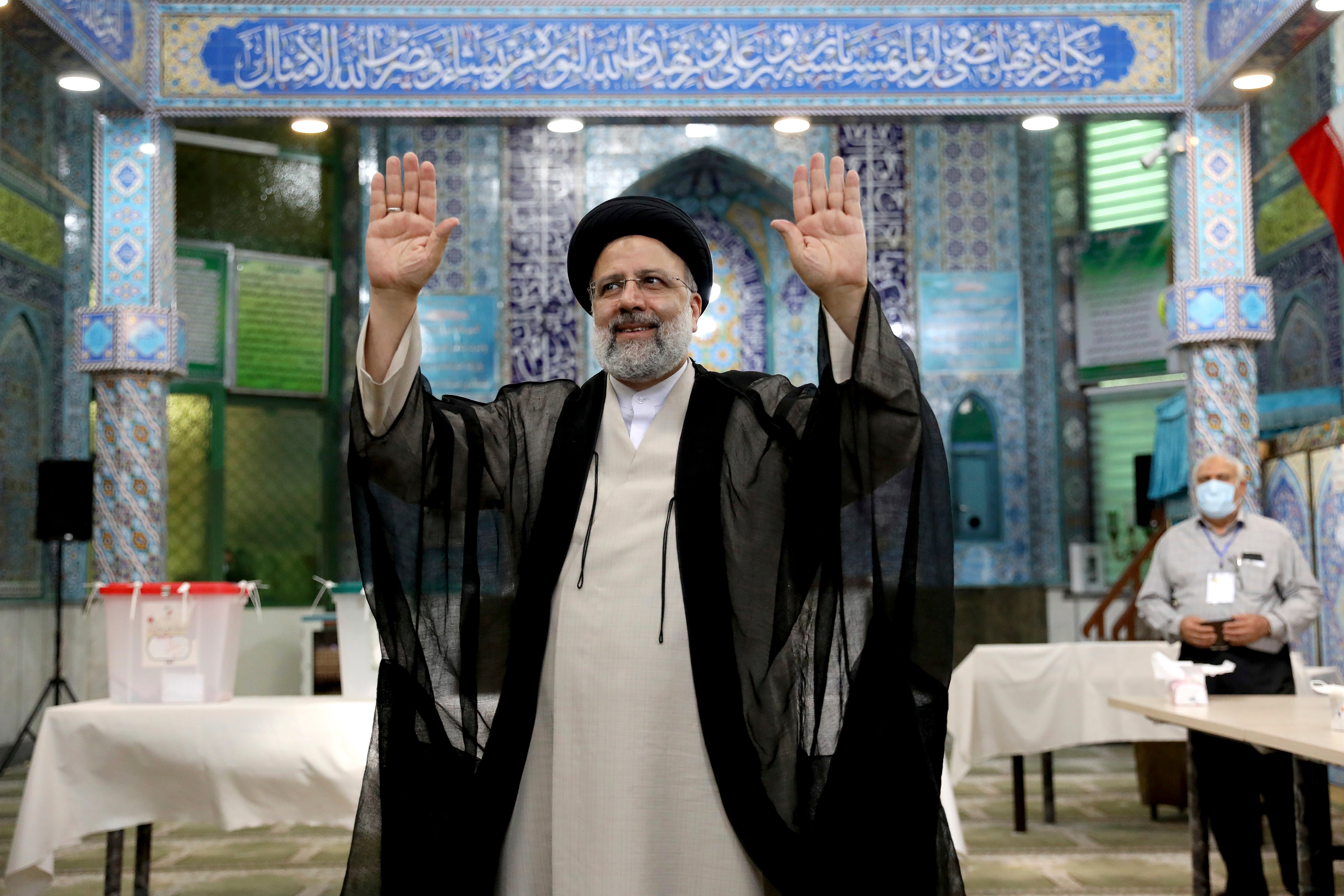Iran has a new president, but a question mark remains over the nation’s future
Editorial: The elections were hardly democratic, but the will of the Iranian people cannot be suppressed altogether

The election of Ebrahim Raisi as Iranian president tells us nothing that we need to know about how the regime will engage with the issues that really matter to the country and to the rest of the world. It was expected that he would win the election, which seemed to have been engineered to produce the outcome that the theocrats wanted.
The weeding of candidates by the Guardian Council was more blatant than usual this time, prompting some of those excluded, including Mahmoud Ahmadinejad, a former president, to complain publicly. This is a reminder both that there is still an element of free speech in Iran, and that its form of democracy is unworthy of the name.
Many Iranians seem to have followed Mr Ahmadinejad’s example in refusing to vote, a form of passive protest that resulted in turnout being down from 70 per cent, four years ago, to 49 per cent.
So the confirmation that the ruling clerics had succeeded in aligning “sun, moon and the heavens to make one particular person the president”, as another excluded candidate claimed, does not answer the important questions about the intentions of the country’s real leader, Ayatollah Ali Khamenei.
It may or may not be significant, for example, that Mr Raisi said, “Our people’s grievances over shortcomings are real,” as he cast his vote in Tehran, and that he has promised to work to lift the economic sanctions that are causing widespread hardship.
Supreme Leader Khamenei has already said that he wants to secure agreement on Iran’s nuclear programme, which is the key to unlocking sanctions, and with a new US president in office the only obstacle to a deal is Iran’s willingness to abide by the limits on its nuclear activities, to which it agreed before President Trump pulled out of the deal in 2018.
In most respects, Iran would appear to be moving in the wrong direction, towards stricter enforcement of conservative religious laws, and away from democracy, pluralism and respect for human rights. The prospects for dual nationals such as Nazanin Zaghari-Ratcliffe, who continues to be treated with the utmost psychological cruelty, look bleak.
But even if democracy has been subverted and Iran is becoming a more closed society, the will of the Iranian people cannot be suppressed altogether. The ruling class is fearful of another popular uprising, such as those that convulsed the country at the end of 2019 and in early 2020.
Mr Raisi was the head of the Iranian judiciary at the time of those protests, when 5,000 death sentences were carried out, according to Amnesty International. He has never been held to account for those killings or for the alleged impunity enjoyed by the security forces. We would not expect the Iranian regime to be constrained by concerns about human rights and the rule of law, but we might hope that the regime recognises that it is in its interest to avoid destabilising mass protests in future.
It is very much in the interest of the regime that a nuclear deal is done that allows relief from western sanctions. It has turned to China for support, but there is a limit to Beijing’s generosity in pursuit of its strategic goals. If respect for democracy and human rights will not do the trick, let us hope that naked self-interest will.
Join our commenting forum
Join thought-provoking conversations, follow other Independent readers and see their replies
Comments
Bookmark popover
Removed from bookmarks